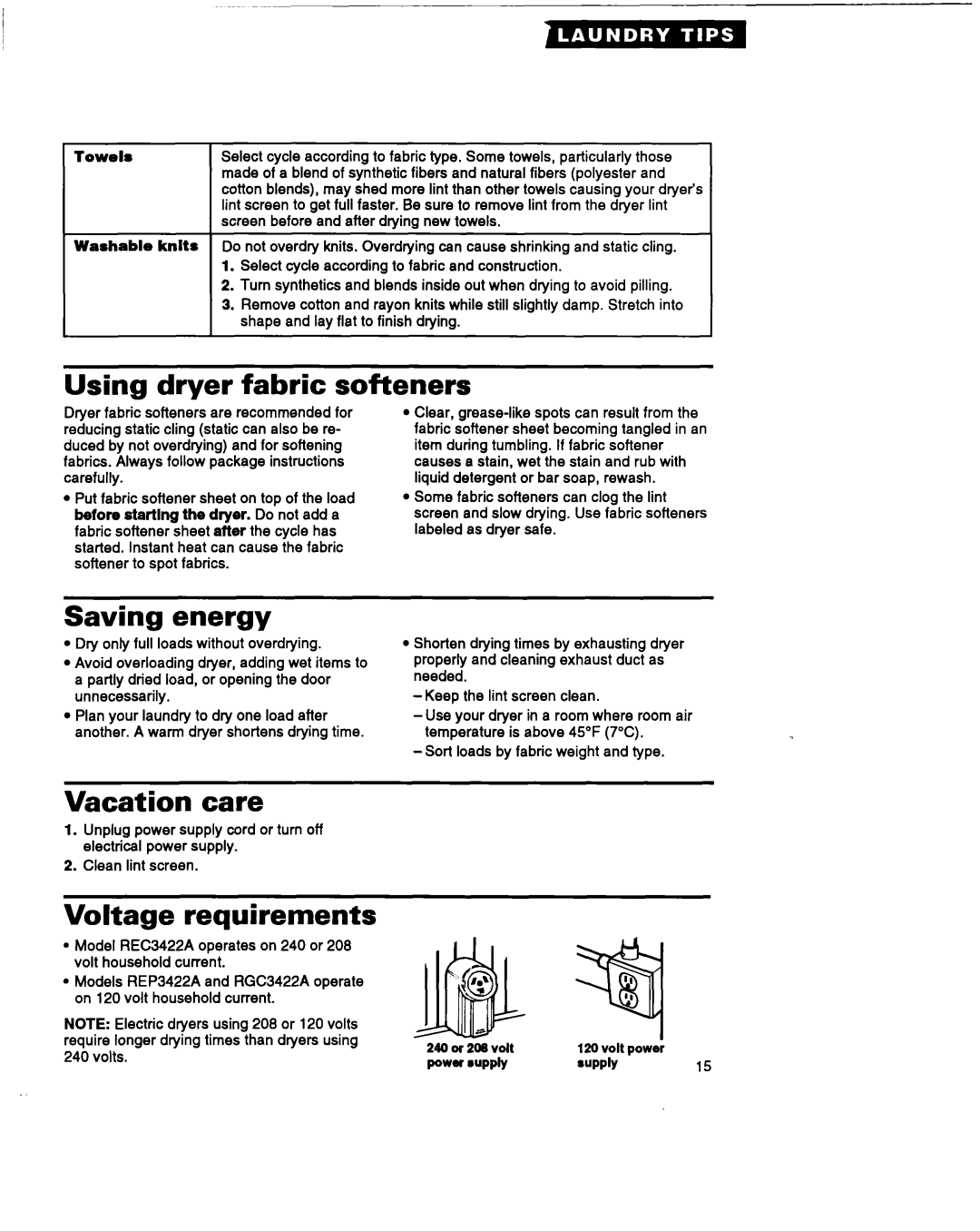
Towels |
| Select cycle according to fabric | type. Some towels, particularly | those |
|
| made of a blend of synthetic fibers and natural fibers (polyester and | ||
|
| cotton blends), may shed more lint than other towels causing your dryer’s | ||
|
| lint screen to get full faster. Be sure to remove lint from the dryer lint | ||
|
| screen before and after drying new towels. |
| |
Washable | knlts | Do not overdry knits. Overdrying | can cause shrinking and static | cling. |
1.Select cycle according to fabric and construction.
2.Turn synthetics and blends inside out when drying to avoid pilling.
3.Remove cotton and rayon knits while still slightly damp. Stretch into shape and lay flat to finish drying.
Using dryer fabric softeners
Dryer fabric softeners are recommended for reducing static cling (static can also be re- duced by not overdrying) and for softening fabrics. Always follow package instructions carefully.
lPut fabric softener sheet on top of the load before startlng the dryer. Do not add a fabric softener sheet after the cycle has started. Instant heat can cause the fabric softener to spot fabrics.
l
l
Clear,
Some fabric softeners can clog the lint screen and slow drying. Use fabric softeners labeled as dryer safe.
Saving energy
lDry only full loads without overdrying.
l Avoid overloading dryer, adding wet items to a partly dried load, or opening the door unnecessarily.
lPlan your laundry to dry one load after another. A warm dryer shortens drying time.
l Shorten drying times by exhausting dryer properly and cleaning exhaust duct as needed.
Vacation care
1.Unplug power supply cord or turn off electrical power supply.
2.Clean lint screen.
Voltage requirements
9 Model REC3422A operates on 240 or 208 volt household current.
l Models REP3422A and RGC3422A operate on 120 volt household current.
NOTE: Electric dryers using 208 or 120 volts require longer drying times than dryers using 240 volts.
| q | 8 11 | |
240 or 208 volt | 120 volt | power | |
powu .UPPly | SUPPlY | 15 | |
